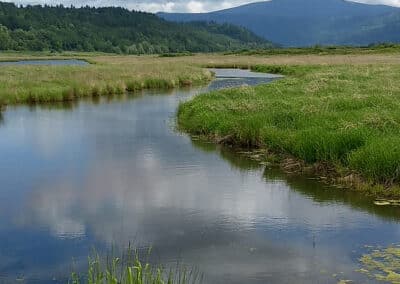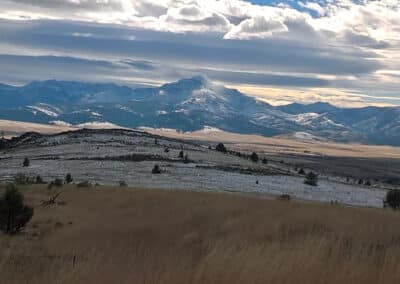Covid-19 Shines a Spotlight on Government Failure
by Nina Bell • November 20, 2020 •
I stopped writing this blog when the pandemic hit. It was hard to concentrate. And, honestly, it was hard to be comfortable talking about environmental ills when a deadly virus was ravaging the world and our country. Even though environmental ills kill softly.
I truly hate to compare the ravages of Covid-19 to environmental issues but it just cannot be denied that one of my first sad observations was that the pandemic laid bare just how political and just how inept state and federal agencies are in protecting public health . . . and the environment.
Just as Congress established pandemic mandates in federal laws and the Trump Administration then proceeded to ignore them, federal agencies—under all administrations—have routinely ignored federal laws to protect the environment and public health, albeit without immediate visible impacts. Frankly, that’s why we are always taking these agencies to court.
There are just so many examples, it’s hard to know where to start. Take this year’s proposed federal approval of Washington’s coastal nonpoint pollution program under a little-known law called “CZARA” (the Coastal Zone Act Reauthorization Amendments).
Congress passed CZARA because it was worried about how increased population pressures on coastal areas were affecting some of the most sensitive ecosystems in the country. Remind you of Puget Sound? It decided to use a carrot-and-stick approach to induce states to set up programs that protect water quality.
And Congress signaled how serious it took the problem because in that law, it set out very specific deadlines for state action and the precise financial consequences facing states that did not meet those deadlines.
No surprise, the states balked. They did not want the political headache of controlling the polluted runoff from farms, logging operations, county roads and bridges, and small dairies. So they did nothing.
The law’s required response was for the two federal agencies that co-manage the program—EPA and the National Oceanic and Atmospheric Administration (NOAA)—to start cutting federal grant money from states that refused to perform. Instead, in 1998, EPA and NOAA came up with a plan to circumvent Congress that allowed the states to refuse to control pollution but still collect the federal grant funds— contrary to what Congress had so clearly legislated.
Not only was this illegal, but it has persisted for decades. Think about it: Maybe if the federal agencies had followed the law 22 years ago, just maybe, Washington State would already have controlled the polluted runoff that is harming Puget Sound and coastal waters, Chinook salmon and the orca included.
And, in Oregon, when we put an end to this illegal work-around through a 2009 lawsuit, the federal agencies eventually disapproved Oregon’s coastal nonpoint source pollution control program—the first and only time in the country—and then refused to cut the money, until we went back to court.
This is just one example of how federal agencies from all administrations so often refuse to follow the law and science, putting the environment and public health at great risk. And that refusal is a mirror image of the Trump Administration’s handling of the Covid-19 crisis.



